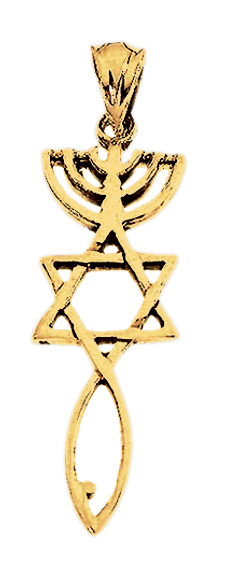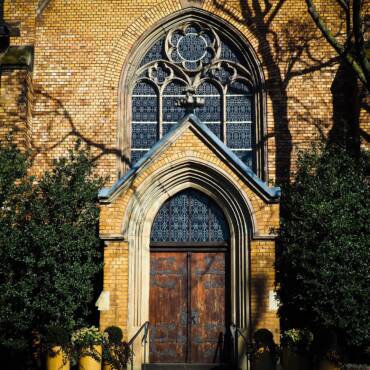The Coming of the King

It’s ordinarily difficult, if not impossible, for most Jewish people to understand the reality of Messiah’s birth in the typical Christmas celebration. The phrase: “Jesus is the Reason for the Season” simply doesn’t compute in the way the holiday is commonly portrayed. There’s just too much commercialized wrapping paper covering the gift of Yeshua, the Savior of the world. Though we live in a confused, materialistic, Santa-saturated world, we can still be a bright light shining in the darkness, like the star of Bethlehem.
Why did Messiah come as a baby?
To clearly see the truth of His birth, we need to see it through the eyes of the Hebrew prophets. During this season, we have the opportunity to emphasize the reality of Messiah’s birth, and what His coming means for each of us and for all people. Instead of the focus on buying gifts, we can emphasize the birth of Emmanuel – a tiny Jewish baby born to a poor Jewish couple in a humble stable in Israel. Why did Messiah come as a baby? The Scriptures declare “The Son of man came not to be served, but to serve, and to give His life a ransom for many” (Matt. 20:28; John 18:37).
“Then a shoot will spring from the stem of Jesse, and a branch from his roots will bear fruit” (Isaiah 11:1).
The Scriptures describe how the house of David had become arrogant and prideful and had to be cut down to size. But Isaiah prophesies how from this stump would grow the most fruitful Branch.
Progression of Provision in Messiah
In an overview of the birth prophesies of the book of Isaiah we notice the progression of provision in Messiah for all people, beginning in Isaiah 7 with “the house of David” then in Isaiah 9 for the whole of Israel, and finally in Isaiah 11 for the entire world. To get a sense of the context closer to the portion, Messiah is seen in Isaiah 10:21 as El Gibbor, Mighty God, and in verse 27, the shemen or anointing oil pictures the assurance of Israel’s redemption in the future. The ancient translation of Targum Jonathan says, “And his yoke from upon your neck and the nations shall be shattered before Messiah” It continues with Isaiah 11:1: “And a king will come forth from the sons of Jesse, and the Messiah shall be anointed from among his children’s children.”
The Branch
Who is this root, or stump, of Jesse? In the book of Revelation, He is the Root of David, as John describes in Revelation 5:5; 22:16: “one of the elders said to me, ‘Stop weeping; behold, the Lion that is from the tribe of Judah, the Root of David’ – that is, Yeshua – ‘has overcome so as to open the book and its seven seals.’”
In the Gospels we learn about the branch as it is written, “Phillip found Nathaniel and said to him, ‘We have found Him of whom Moses in the Law and also the Prophets wrote – Yeshua of Nazareth, the son of Joseph.’ Nathaniel said to him, ‘Can any good thing come out of Nazareth?’ Philip said to him, ‘Come and see’” (John 1:45-46). Matthew also writes that the city where Yeshua grew up, Nazareth, fulfilled what was spoken through the prophets “He shall be called a Nazarene” (Matthew 2:23). The word for Nazarene has the same root as Netzer, the Branch spoken of in Isaiah 11:1. Yet, both the New Covenant writers and Isaiah emphasize the lowly origins of Messiah at the time of His birth.
Two Pigeons
Despite the house of David’s royalty, the metaphor used is of “a stump” (Isaiah 1:11). When Messiah was born, though the line of David was still in existence, the dynasty had been without power for nearly 600 years. Notice that Isaiah refers to Jesse, who was never himself a king, rather than to his son David.
The prophecy points as well to the absence of royal dignity of David’s house at the time of Messiah’s coming. According to the Gospel accounts, Joseph and Miriam (Mary) were poor. Their child was born in a manger. When Miriam made an offering at the temple to fulfill the purification rite for her son’s birth, she used the poor person’s offering of two pigeons, rather than the lamb and pigeon (Luke 2:24; Leviticus 12:8). Though Miriam and Joseph were both of the House of David, their low estate is clear. Messiah was thus portrayed as “a root out of dry ground” (Isaiah 53:2).
A Surprise Founded in Promise
This Messianic line would be a source of true hope, His kingdom will administer righteous rule, and the Anointed King will speak the Word with power. (Isaiah 11:1-5; Psalm 2:9; Revelation 19:15). Thus, Isaiah saw the full picture of Messiah’s coming, along with this humble beginning, a picture of peace and harmony restored between peoples and even within creation (Isaiah 11:6-9). Though a stump is apparently unproductive, it would miraculously spring forth and bear fruit.
His birth was a surprise, founded in promise. So too, those who trust in Him are surprised by new birth, a fulfillment of the promise of God. Those who trust in the Root of Jesse bear the fruit of righteousness by that promise, awaiting the return of their humble King.




Add Comment